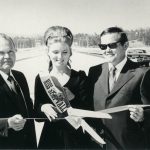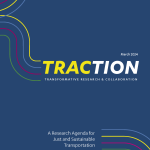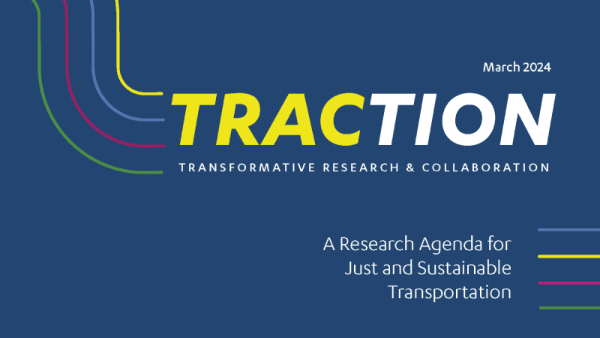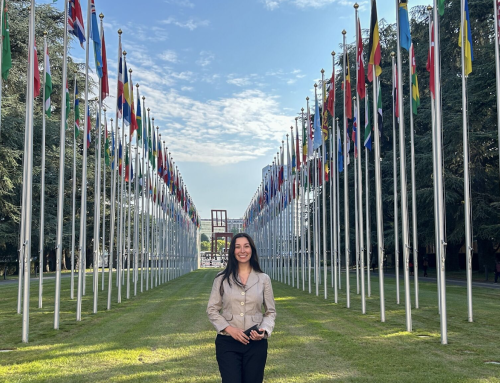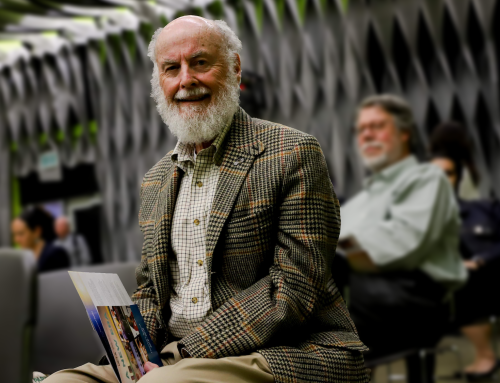UCLA ITS welcomes new equity research manager
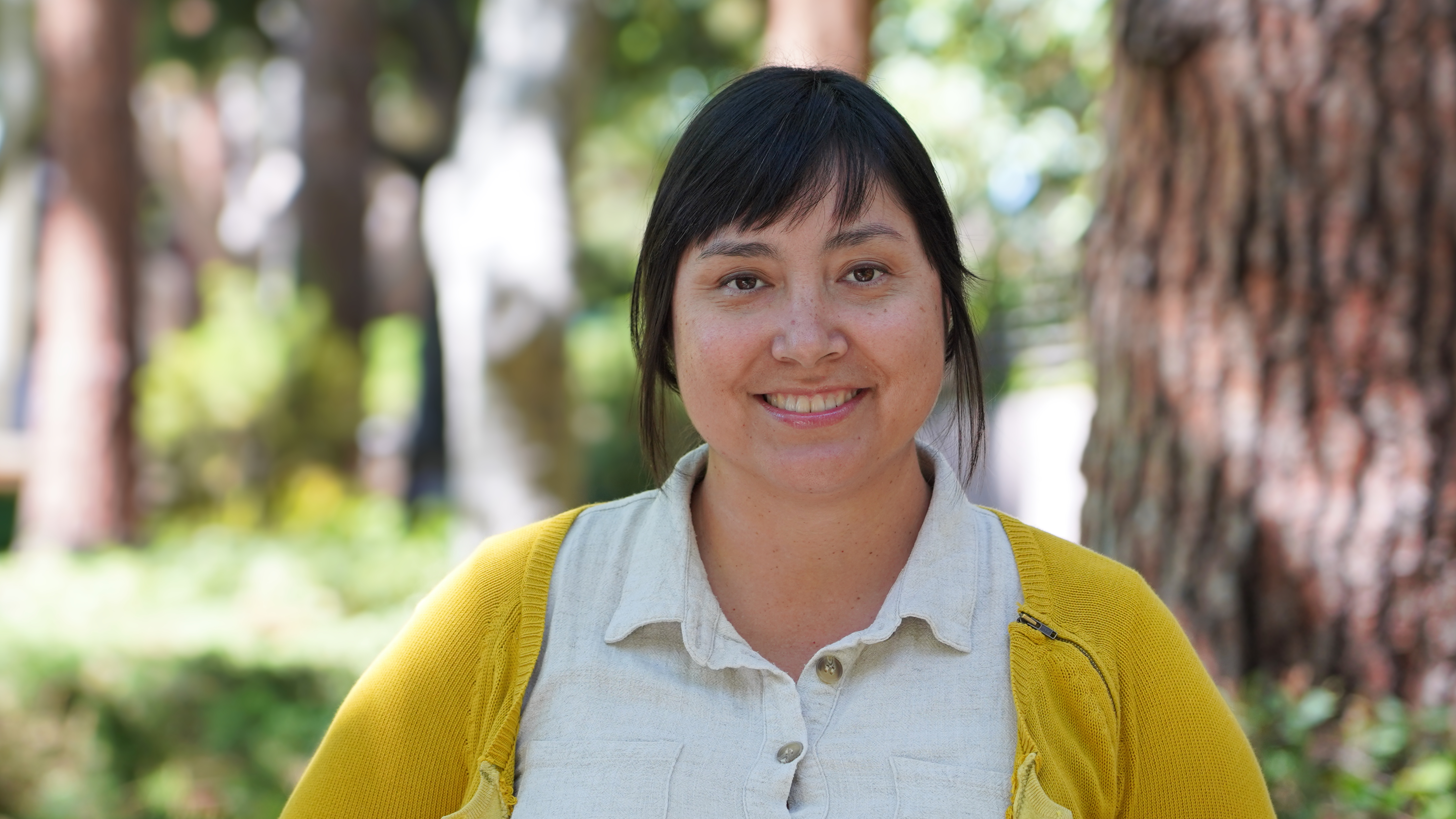
In June, the UCLA Institute of Transportation Studies welcomed its newest staff member. Adonia Lugo joins the team as the inaugural equity research manager. Lugo is a cultural anthropologist who has been studying transportation and race issues for over a decade. She helped launch Los Angeles’s open streets CicLAvia and the organization today known as People for Mobility Justice. She was also one of the founding organizers for The Untokening, a multiracial collective that centers the lived experiences of marginalized communities to address mobility justice and equity. Lugo was recently appointed to the California Transportation Commission.
This interview with Communications Manager Claudia Bustamante has been edited for length and clarity.
Alright, let’s just dive in. Can you tell us about yourself and your work?
I think of myself as an anthropologist out of place because I don’t have a background in planning or public policy through my formal education. I have a Ph.D. in cultural anthropology, and that’s a field that can be really wide-ranging since it’s just the study of people and culture.
I ended up focusing on transportation and sustainable transportation, specifically, when I was developing my dissertation project at UC Irvine. What hooked me was recognizing how here in Southern California – where we have such great weather and a lot of our cities are laid out on grids – many people still think biking for transportation is a terrible idea.
And specifically, as a Mexican American woman and someone who grew up in a Mexican immigrant neighborhood, I noticed something going on with this reluctance to get out of cars that seemed to be tied to discrimination, segregation and racism. What is it about our ways of getting around on streets that tie in with these systems of discrimination and histories of inequity? I started thinking about these topics through the lens of bicycle infrastructure, public space and culture as a form of “human infrastructure,” which ended up being the centerpiece of my dissertation project.
From that, I moved to Washington, D.C., in 2013 to work for the League of American Bicyclists, examining what we could do to increase social and racial equity in the bike advocacy world. And in 2015, I pivoted to focusing more on the organizing side of sustainable transportation, and specifically, collaborating with other people who were either people of color like me or who for other reasons had experience being part of marginalized communities (e.g., women, LGBTQ+, people with disabilities). We had a few national convenings for this group that we called The Untokening because we’re all people who had dealt with feeling tokenized in the transportation field. In 2017, we released a set of guiding ideas called the 1.0 Principles of Mobility Justice.
Mobility justice is now the term that I use to describe the work I do. It’s a multidisciplinary effort to address past harms and heal so that our mobility and transportation systems of the future don’t perpetuate the same barriers and segregation that we’ve had in the past. It’s looking at how to make our streets safer, not just in terms of traffic violence, but also discrimination, and personal safety. That’s what I call the work of mobility justice, and that’s where it came from for me.
What’s your new role as the UCLA ITS equity research manager entail?
One part of my job is participating in UCLA projects and getting new projects started that focus on transportation equity. And I will be collaborating both with researchers whose previous work hasn’t included much equity and with people who focus on equity on how to further support their work.
Similarly, I’ll be developing an overall strategy for the statewide initiative to ensure that equity is baked into the work that’s happening. One of the things I’m really excited about is getting to reconvene an equity advisory group that had been created across the four ITS campuses, and maybe creating an external advisory council.
This is the first time that UCLA has had a dedicated transportation equity research position. What would you consider a win in this position?
I have been aware of UCLA ITS and the influential work that it does for several years. There’s obviously important transportation research coming out of UCLA, but I don’t often see how these projects connect with community-based movements. That’s what is exciting to me about this role. There’s a recognition that all this theoretical and technical expertise and innovation can become a community resource.
From my perspective, a win would be supporting the development of transportation and mobility projects driven by local organizations and using UCLA’s research capacity. I’m a huge fan of collaboration. I’m the sort of researcher who thinks it’s much more fun to be working with a group as opposed to doing the work on my own.
How do you ensure that equity isn’t treated as a checkbox, but rather that it is a meaningful part of research – even as early as the development phase?
I’m an optimist. And I do really think that we have been going through a culture shift around the integration of equity. When I first started working in advocacy in 2013, the kind of awkwardness of how people would respond to equity, if it was out of their wheelhouse, was very pronounced. And I think today in 2022, there’s less of that awkwardness. People have more fluency, even if it’s not what they would consider their realm of expertise.
Fortunately, I’m not starting from scratch. There have been some recent great hires and I’m stepping into a team of people who are thinking about how to deeply integrate equity into their work. But I’m ready to be working alongside colleagues across multiple disciplines who are at various stages relating to equity as a topic.
That’s a great approach for colleagues and researchers who have been professionals in the field for numerous years. But at the other end of the spectrum, we have students who will become the future generation of transportation leaders. What role, if any, are you going to have in helping students consider equity questions?
I’m hoping to lead a mobility justice class sometime next year that would engage with these topics. It would be a dialogue with [UCLA doctoral student] Tamika Butler.
I think it’s really important that we support the perspectives that students are bringing and their understanding of the world today. We would be losing out as researchers if we weren’t paying attention to how students are interpreting the world around them. I would like to be a resource for students who are trying to connect those dots between their lived experience and bringing equity into their work.
You’ve also been recently appointed to the California Transportation Commission. Can you tell us anything about your role as a commissioner?
There is a lot of work happening at the California Transportation Commission and the state transportation agencies around equity, like defining what that means, what programs need to be established, and so on. I do think I’m going to be able to make connections between my role on the research side and my role on the commission side. But again, you know, that just points to how there is a lot of work happening in this area right now. I’m glad I get to be part of it.
Anything to add?
I just want to add my interests in Indigenous justice and traditional ecological knowledge. Those are two topics that I’ve spent a lot of time learning about. Working in urban sustainability education for the last few years, I got to see how, in California, our resilience or ability to adapt to climate change needs to draw on and elevate the kinds of strategies developed over a long period of history and still practiced by the original stewards of this land; in Los Angeles, those are the Tongva people. I don’t yet know what shape this will take, but I do hope that part of my role will allow me to incorporate tribal knowledge into transportation equity conversations.
Recent Posts
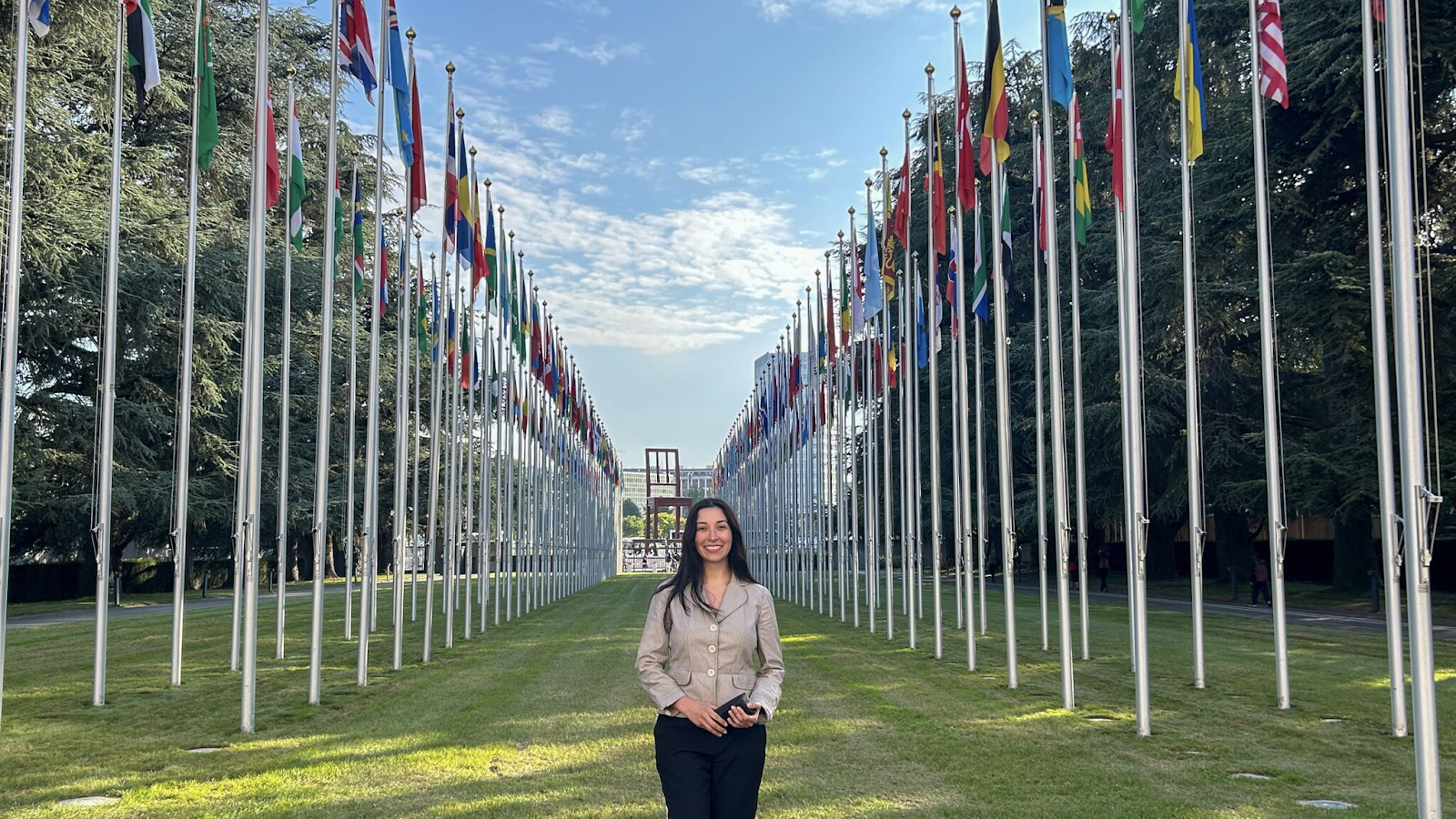
MURP student ‘speaking up’ for equity in transportation and planning
Veronica De Santos spent a semester abroad in Geneva, where she called on global leaders to invest in underrepresented voices shaping the future of sustainability and transportation.
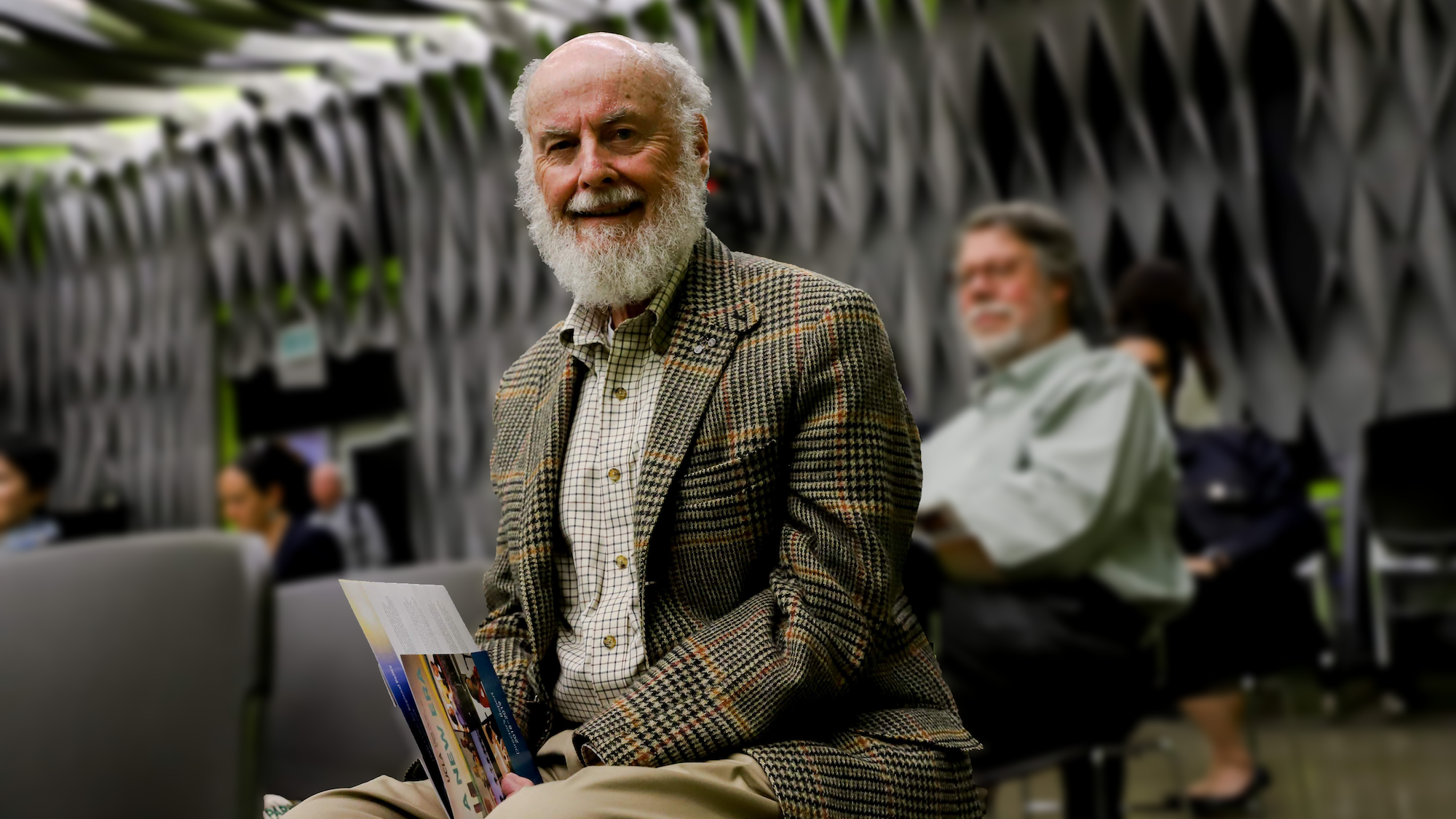
Remembering Donald Shoup
UCLA ITS’ 2nd director and a visionary scholar reshaped cities with his pioneering work on parking, inspiring legions of ‘Shoupistas’ and lasting change.


